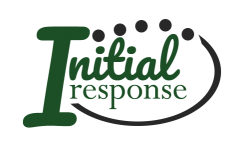First responders have the responsibility of protecting the public and the crime scene. Generally, to respond and provide assistance to emergency situations. Their first responsibility is to ensure the safety of the public and their fellow officers as well. They can be employed as firefighters, police officers, paramedics, and EMTs (emergency medical technicians).
Especially during the pandemic, being a first responder is no joke. Many people may know them and what they do, but they don’t mostly realize how difficult their job is.
They may have 12-hour long shifts, but if an emergency occurs within their last hour, their dinnertime delays. They are not made for warnings; they are just always ready to respond and attend to their responsibilities. Their loved ones are always in their hearts, but they must put all personal life aside in the middle of an emergency. They even expect to stay at work at least an hour past their scheduled work hours.
A first responder is human too. They can be traumatized at any of the scenes they encounter at any time of any day. For it to get worse for them, they can develop a mental illness that changes their lives forever.
Post-Traumatic Stress Disorder
This illness is usually developed from acute trauma or repeated exposure to traumatic events and ongoing threats. Such as being the victim of an attack and witnessing any life-threatening situations.
Researchers found that 20% of police officers are in danger of developing PTSD.
Other Trauma-Related Disorders
Anxiety, depression, and sleep disorders can be developed from a terrible encounter with being a first responder. Every first responder is different and how they process trauma varies. Depending on their background, history, underlying mental health issues, and the way they cope. This can lead to suicidal thoughts and even death.
Substance Abuse
Speaking of how they cope, they take alcohol and drugs to keep themselves sane. But without realizing it, they’re already making it worse. In an attempt to cure their trauma by being high or getting drunk, it can lead to misuse and addiction.
How You Should Support as a Loved One
Supporting a friend or a family member who is a first responder can be scary and nerve-wracking. But it is the least you can do for them.
Communication can be trying for first responders’ loved ones. A first responder may come home with a traumatizing event already in their head and doesn’t want to talk about it. Since they work long shifts and long hours, they are understandably stressed, exhausted, or even bunt out. Maybe they just don’t want to worry you. It can also be because of confidentiality matters.
The first thing you can do for them is to get off their case first if they don’t want to be disturbed. But ensure them you’re there for them and you won’t judge them. Understand the probability of their mental health breaking because of their job. Plus, since you probably live with them and see them every day, you’re in the right position to observe them and make conversation once you sat down calmly.
Lack of communication can cause first responders’ disconnection and isolation from their primary support. While there is no right or wrong way of healthy communication, families should set their boundaries and expectations together. Better to talk about it earlier than later.
How You Should Support as a Citizen
As people who breathe the same air as these first responders, it is just right for you to support them in any way you could. It is a way of expressing your thankfulness for their selfless service. Being a first responder is more than just sliding down poles, firetrucks, police cars, sirens, and amber LED light bar strobes.
You can have food delivered to their stations. This way, not only you’re reinforcing the first responders, but you’re supporting local businesses as well.
Learning more about what they do can increase your support and empathy towards them. Keep yourself and your house companions updated on the happenings in your local area. Another important thing is to always follow the rules and the law to keep yourself from committing to their work struggles.
Of course, you can always donate money or equipment directly to them, or the foundations that support emergency responders. Volunteer to behavioral health programs that help first responders and their families. You can participate in support groups that offer both in-person and via video chat meetings. This can help them avoid overcoming their traumas and terrible encounters.
Having the best support groups for the heroes is the least you can do for them, whether or not you know them personally. Supporting them in the least way you can, for all you know, can help them take a step further away from potential illness. Big or small contributions are helpful enough.
Meta title: How to Support First Responders in Your Community
meta desc: Do we really realize enough what first responders go through? Understand how much they suffer for the citizens’ sake and do your best to show your support.













Comments